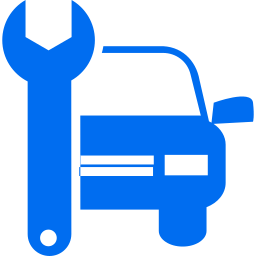Encountering problems on your vehicle is especially annoying, in addition to the financial burden that these concerns signify, one must also add the time lost with a non-operational Dodge Challenger and the time spent to establish and fix the malfunction. Nevertheless, some problems are less serious than others, which is not to say that they do not worry us. In this article we are going to check out a issue that can happen to all of us, having vibrations at acceleration on Dodge Challenger. This issue can in some cases be hard to perceive but it must be dealt with. We will consequently start our article with the roots of these vibrations on Dodge Challenger, then, with the answers you have to reduce or stop these tremors.

Why does my Dodge Challenger produce vibrations when accelerating?
So let’s start our article with the roots of this form of issue on your car. You should already know that an engine, especially if it is old or if it has been driven a lot, can naturally vibrate without being a issue behind it. Large diesel engines, especially those with a lot of torque, can generate this sort of feeling, both at idle and when accelerating.
I feel vibrations on my Dodge Challenger only when accelerating
Let’s take the most interesting case for us in this article. The simple fact that you undergo trembling on your Dodge Challenger during your acceleration phases, in this circumstance you will have to verify the state of several elements because a good number of elements can be at the source of these vibrations and regardless if you are unfortunate a combination of several of them may also be possible, here is the list of components that can be concerned.
- Turbo: If the turbo of your Dodge Challenger is faulty, it may generate vibrations that you will suffer when you accelerate at the moment it is activated.
- The turbo pressure sensor: This sensor will manage the pressure exerted in the turbo of your car, if it fails it may bother the performance of your turbo and bring about vibrations that you may experience within the acceleration of your Dodge Challenger.
- If the turbo is punctured or ruined, the consequence will be the same, the power supply of your turbo will be troubled and its performance too. Make sure to visually examine their state.
.
I’m feeling vibrations on my Dodge Challenger at acceleration and deceleration
We will now concentrate on the situation where you experience vibrations on your Dodge Challenger when you are accelerating but also when you are idling. If you only experience vibrations when you are idling on your Dodge Challenger, please seek advice from our article dedicated to this issue to solve your problem. If, on the other hand, you realize that your Dodge Challenger vibrates when accelerating but also when it is stopped, here is the list of components to examine:
- EGR valve: In truth this valve which handles the return of exhaust gases for pollution standards can become dirty and disturb the evacuation of exhaust gases which can generate Dodge Challenger vibrates when accelerating but also when stopped.
- Injectors: Your injectors that regulating the fuel/air mixture flow may be dirty or damaged, which will discharge the wrong amount of mixture and thus prevent your engine block from working properly, it is even possible that one or more of your cylinders are not running effectively.
- Fuel Filter: Like the injectors, if the filter is blocked it will not let the fuel pass effectively and therefore disturb the operation of your Dodge Challenger, up to the point of producing vibrations during acceleration.
Here are the most important triggers of a Dodge Challenger that vibrates at acceleration
What can I do to stop the vibration when I accelerate on my Dodge Challenger? What can I do?
To conclude, in this last section, we will provide you the answers available to you to cure these tremors on your car when you accelerate. Here is the best attitude to adopt based on the component that is concerned:
- Turbo: If your turbo starts all these vibrations when you accelerate your Dodge Challenger, it will be good for you to control all the components linked to it because changing a complete turbo is a big budget and in most cases the issue does not come exclusively from the turbo. So remember to take a look at your turbo pressure sensor, your flowmeter, the EGR valve and the hoses of your turbo. Otherwise take your Dodge Challenger to your garage.
- EGR valve: The EGR valve has the benefit that it is often times easy to access and simple to take apart/clean. You can always check out it and clean it, for this see our article on cleaning the EGR valve of an Dodge Challenger.
- Injectors: Injectors are very fragile components and a few harmful particles may be enough to disturb their operation. Use a fuel additive to simply clean the injectors, if this is not enough you will have to go to a expert.
- Fuel Filter: If it is the fuel filter, just replace it. A fuel filter doesn’t clean itself, so if it is clogged you will just have to replace it with a new one.
Now you have all the information you need to locate the source of the vibrations at acceleration on your Dodge Challenger. If you don’t feel able to perform certain operations don’t hesitate to go to your repair shop.
If you wish more guides on the Dodge Challenger, go to our Dodge Challenger category.

